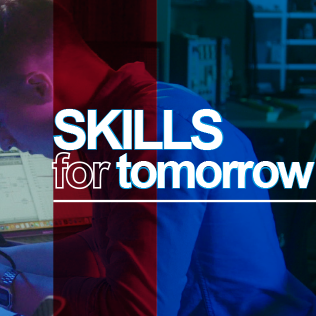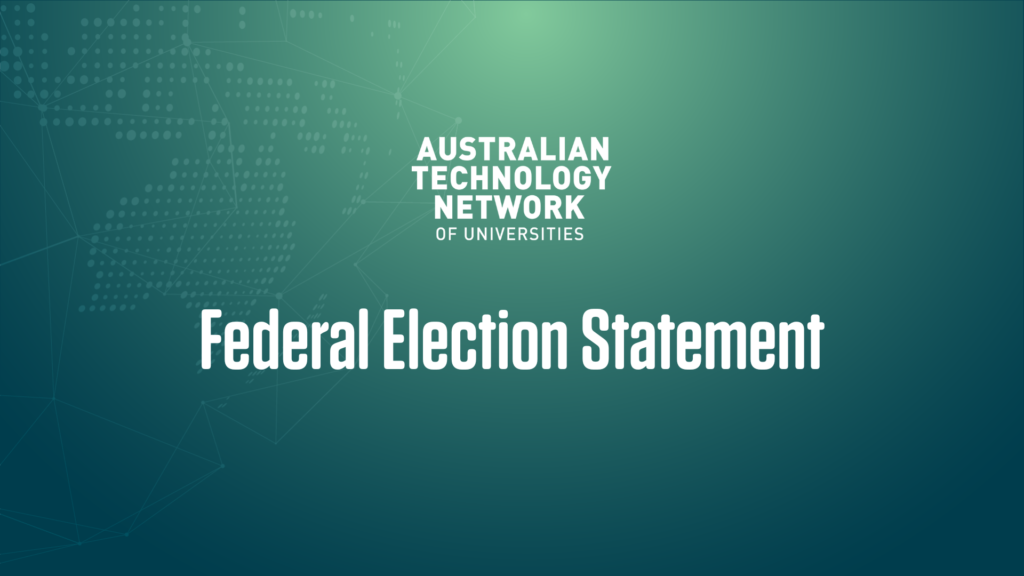Skills for tomorrow: A paper from ATN, TDA, AI Group and Alphabeta
14 December 2020ATN Universities in partnership with TAFE Directors Australia (TDA), the Australian Industry Group (Ai Group) and AlphaBeta (now part of Accenture) […]

ATN Universities in partnership with TAFE Directors Australia (TDA), the Australian Industry Group (Ai Group) and AlphaBeta (now part of Accenture) are proud to launch our new paper Skills for Tomorrow. Our paper sets out a practical shared vision for education and employment post-pandemic.
Skills for Tomorrow is the result of a collaborative and comprehensive approach that covers tertiary education, industry and the needs of workers. Together our organisations represent over 265,000 higher education students, almost 780,000 vocational education and training students, and more than 60,000 businesses employing more than one million staff.
Skills for Tomorrow outlines the need for Australia to plan for, and invest in, re-skilling and up-skilling workers throughout their lifetimes for future industries that will power an advanced economy.
We call on the Government to work with the tertiary education sector and industry to:
• Prioritise future industries
• Create a national workforce development strategy
• Develop innovative funding mechanisms such as skills accounts
• Enable this change through ongoing reform to the Australian Qualifications Framework
Read Skills for Tomorrow – www.atn.edu.au/publications
Quotes attributable to Luke Sheehy, Executive Director ATN
“ATN and its Skills for Tomorrow partners are Australia’s leaders in education, industry, and economic consultancy.
“Together, we present practical and innovative actions that can be carried out in partnership between governments, universities, tertiary education providers and industry. These actions will drive Australia’s economy and help keep workers in meaningful, secure and high-value jobs.
“We know that collaboration and flexibility in an integrated skills system will be vital to making the most of the opportunities Australia has.”
Quotes attributable to Dr Andrew Charlton, Director AlphaBeta (now part of Accenture)
“COVID-19 has dramatically changed the skills landscape in Australia. Not only are many Australians now looking for work, or looking for new types of work, it’s also changed the demand for skills, with many Australian companies accelerating their pathway towards digitisation and looking for new sets of skills to operate their businesses into the future.
“The Australian education system has a responsibility and an opportunity to respond to this challenge and help support the post-COVID jobs of the future.”
Quotes attributable to Mr Craig Robertson, CEO TAFE Directors Australia
“The way TAFEs, universities and industry work together coming out of the COVID disruption is critical to our recovery as a nation. All Australians want us to be more self-reliant in our capacity in a range of matters such as healthcare, manufacturing of key products and medical research. Australians will also want to see there is a path of economic recovery where they can see a role for themselves.
“This paper provides practical ideas for how to go about this through productive working relationships between industry and education. It’s symbiotic. Skilled people power business, but there needs to be businesses and industry at the forefront of technology and productivity for these skills to be utilised.”
Quotes attributable to Ms Megan Lilly, Head of Workforce Development, Ai Group
“The depth and breadth of the challenges faced by Australian industry during the pandemic have been extreme. Rebuilding by business now will create opportunities for individuals to rebuild their participation in the workplace or enrich their working lives.
“One significant upside of the pandemic has been rapid digitisation and now we need rapid up-skilling to support that. That support needs to come from our education and training system. In fact, it needs to drive closer partnerships between industry, businesses, work and training providers and universities.
“We have been pleased to work with ATN, TDA and AlphaBeta and contribute to this important work and the discourse that we are now engaging in.”

